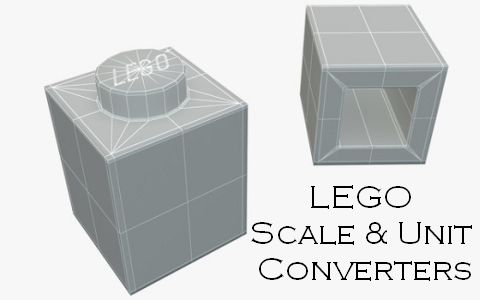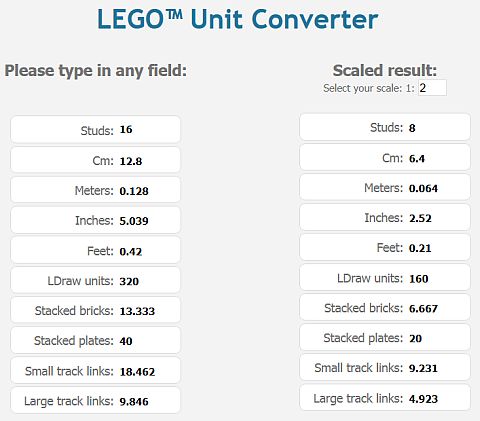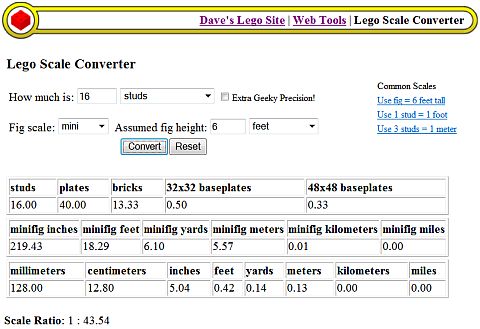If you are building large LEGO dioramas or scale models, a LEGO scale converter can come very handy. For example if you would like to build a scale model of your house, a LEGO scale converter can help you figure out how large each section of the house needs to be when you build it from LEGO elements without loosing accuracy. And you can also work within the world of LEGO – like for example if you would like to figure out how large a structure needs to be compared to a minifigure, you can calculate that too. There are two excellent LEGO scale converters that I wanted to share with you today, and I think you will find very helpful. 🙂

➡ LEGO UNIT CONVERTER: This online tool was developed by Polish LEGO fan Paul Kmiec (a.k.a. Sariel). It is a simple but very effective unit converter for LEGO studs, bricks and tracks as well as for metric and imperial systems. All you have to do is enter the desired value for a unit of your choice, and the equivalent will be shown for all the other units. These include LEGO studs, centimeters, meters, inches, feet, LDraw units, stacked LEGO bricks and plates, and LEGO tracks of both types. The converter also shows scaled results for a specified scale in the right column. The scaled results are updated whenever you change any value in the left column or the sale factor. Here is the link: LEGO UNIT CONVERTER

I use this LEGO scale converter quite often, in fact I have it added to my browser for quick access. Please note that some values may be slightly inaccurate because of internal rounding that is performed during calculations – for example you can get 0.999 instead 1. According to Sariel this issue may be eventually solved, and also he may add more units to the calculator in the future. But even now it is excellent.
➡ LEGO SCALE CONVERTER: This online tool was developed by Dave Eaton (a.k.a. DaveE) and basically does the same calculations as the converter above, however it has additional useful measurements based on the size and scale of either standard LEGO minifigs or LEGO Technic figures. With this feature you can find out things like how many studs is a mile in minifig scale and such. Although here the measurements are also rounded up by default, there is a checkbox if you would like very precise conversions. Here is the link: LEGO SCALE CONVERTER

This calculator is excellent when you are working in LEGO minifigure scale, or would like to convert real life structures and landscapes into minifig size. I have this one bookmarked as well for quick reference. As you can see both calculators cover some of the same basic measurements and also have some nice features on their own, so it is a good idea to know about both of them.
What do you think? Have use used either of the LEGO scale converters before? Any other ones that you are aware of? Or do you use your own system for converting measurements and scales? Feel free to share and discuss in the comment section below! 🙂
And you might also like to check out the following related post:













